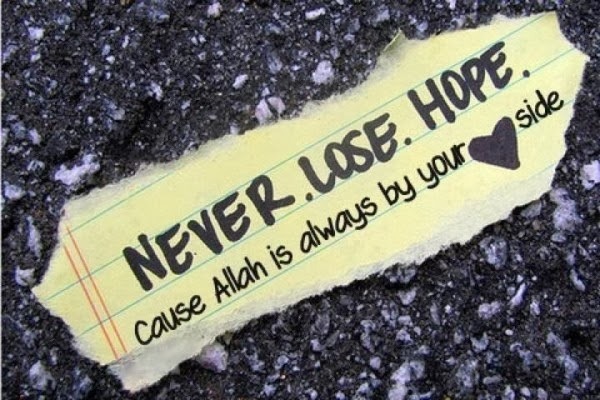
Moving back to the STATES, silently suffering the repercussions of a 23-year marriage gone to the wind, and realizing that I was all alone was not easy. Abuse comes in all shapes and methods. I could sense the stigma and taboo of divorce hushed and shoved away as dealing with it was contaminating. As if the person experiencing the pain and going through the struggle did not matter. As a product of divorce myself, I knew even my mother felt ashamed about my divorce, which she wouldn’t articulate, but I felt it. Despite her insistence that all would be fine in due time, I still could see her avoiding telling her friends about the truth of her daughter’s divorce as if to say something, by extension, was wrong with her, too. I suppose she knew that type of honesty creates its whispers behind closed doors, and in her own way, she was protecting me by covering, at least outwardly at that her daughter was divorced. Others would listen to my story and, at the end of it, tell me, “O sister, sabr(patience) is better than divorce.” or “Perhaps you should have maybe given him another chance; after all, he was a physician, and you lived comfortably.” The married families who knew me for most of my 23 years of marriage didn’t even have the decency to call as a friend to check up on me. Later, I learned from others that it’s their fear of a divorce. It is best to keep afar to keep their own families secure from vulnerable women who might steal from their husbands. Far from it, but I can understand their level of ignorance and live in their insecure marriages. Most shocking was even close family who would come summer to spend it up in the North East distance themselves because I wasn’t the “doctor’s wife” anymore. To top it all was one lady who, as matter a fact, told me without even knowing me for a couple of minutes that, according to her, “women are mostly to blame because they bring abuse upon themselves.” Feeling frustrated was an understatement when I recognized all these shaming taboos. I, too, felt lost for words and expressions to share because even if I did share, who would genuinely acknowledge and understand me? Who do I turn to? Who can help me? No one. Is that what the community was for? Just people who we knew who turned a blind eye? I walked the corridors of the masjid with this feeling of disconnection and isolation. I could only wrap a blanket around myself and grab my glass of tea, and sit in front of my TV, hoping for something to happen for people to understand my struggle.
THERE WAS NO SUPPORT.
My situation begged a deeper look into what type of support could be found. Despite feeling like I was a sore thumb in the middle of my community, I wasn’t shy about sharing my divorce story. I wanted people to hear it and to understand that divorce is a sad but sometimes inevitable decision one has to make. One maghrib after salah, as I turned to say sallam by ending my evening prayer, I heard a sister say, “Tell your dad to come to pick you up this weekend; it’s his turn.” Surprised to hear this, however, I quickly jumped to the opportunity to introduce myself to the sister talking to her son. I felt a sense of belonging, and while my inside voice was cheering, “Guess what! Yes, she too was divorced and raising her two sons in shared custody with the father.” I was curious about her story; I knew there must be many more sisters like this, so I decided to set myself out to discover who they were. Soon, I realized that I wasn’t the only one going through the challenges that life had set forth for me. As a divorced, single mother of four teenagers, I quickly realized that there were many in my shoes, some better off and some in more troubling circumstances. As I found my place of comfort in the masjid prayer hall, it appeared that there were also others just like me who hung around for the same reason: to avoid being alone at home. Several divorcees would sit around after maghrib prayers in the masjid and socialize as I did. As I discovered them, they, too, found me, and we shared our experiences; many came forth, creating an opportunity for our voices to be elevated. These women and I needed to be recognized, acknowledged, educated, and connected to promote each other and grow to avoid our past misgivings to set our current life trajectory.
Learn from each other’s life experiences and grow into an extended family within our community. I feel that there is a need for a platform to represent the Muslim divorced woman without apologizing or watering down regarding supporting women at a critical time in their lives. Healing is a journey, and offering hope for this tremendous path to discovering life after divorce is even that much more necessary for hope to live on. The only way for Muslim women to learn and be educated on their rights is to own their narrative, and by doing so, they will learn to stop being and start becoming in the role that God, according to the Quran, has honored her; “We have honored and dignified the sons of Adam.”, Allah promises us that after every difficulty is a relief. We must never lose hope that our situation will improve. Say: “My servants, you who have transgressed against yourselves, do not despair of the mercy of Allah.
“Be the change you want to see.” Gandhi
thus came up with the vision of CircleofSTARhood, now better known as Care2Elevate.space. This organization’s vision is to ensure that our communities no longer have a gap in the system where individuals going through a difficult time, such as divorce, are neglected. Care2Elevate aims to be a divorce recovery support group that creates safe spaces for both men and women where they can share their experiences post-divorce, educating the community about stigmas, taboos, and ostracization of divorce with the intent of becoming an extended family for each other.
